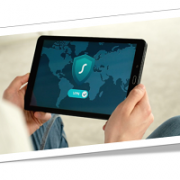Many see security as a barrier, not a business enabler
Despite news of devastating cyberattacks breaking almost daily, many business leaders still fail to see the full value a strong cybersecurity posture brings to their organization, new research has found
This is according to Risky Rewards, a new report published by cybersecurity experts Trend Micro polling more than 2,700 business decision-makers in companies with 250+ employees across 26 countries, finding that around half (51%) see cybersecurity is a “necessary cost but not a revenue contributor”.
At the same, a somewhat similar percentage – 48% – claim cybersecurity’s value is “limited” to attack and threat prevention. For nearly two-fifths (38%) cybersecurity is a barrier, not a business enabler.
Winning new clients
“If organizations want to make the most of their security investments, business leaders must reframe their view of cybersecurity – to think more broadly about how it can positively impact the enterprise,” commented Jon Clay, VP of threat intelligence at Trend Micro.
“This research shows it’s clearly a critical component of winning new business and talent. At a time when every dollar/penny counts, it’s concerning to see stereotyped views of security persist at the very top.”
Further in the report, Trend Micro claims 81% worry that a poor cybersecurity posture could hurt their ability to close new clients. In fact, for 19% this already happened. What’s more, 71% of business decision-makers are being asked about their cybersecurity posture in negotiations with potential customers and suppliers, with 78% admitting the questions are getting more frequent.
Cybersecurity has also become pivotal for talent acquisition. Almost three-quarters (71%) said remote and hybrid working offerings are now essential for talent acquisition. For 83%, current security policies affect remote employees’ ability to do their jobs, with 43% saying current security policies prevent employees from working remotely. Also, 54% said their policies restrict what devices and platforms employees can use for work.
Finally, two-thirds (64%) of business decision-makers confirmed they’re planning on increasing their security budgets this year.
If you are looking for an expert to help you find the best solutions for your business talk to GCInfotech about a free technology assessment
Published with consideration from TechRadar SOURCE



